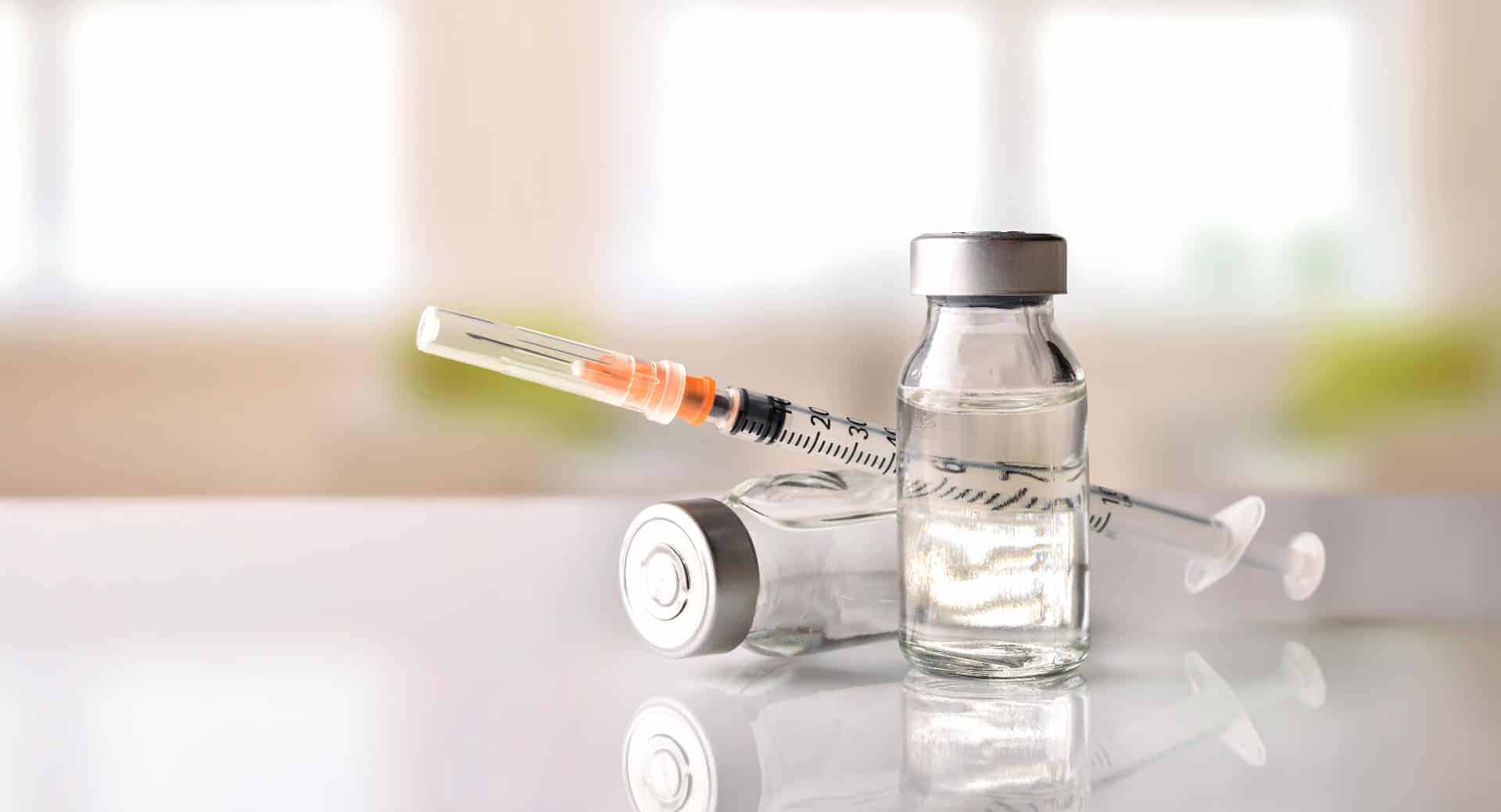Testosterone Injection
CoreMed Plus is a premier medical center committed to providing high-quality care to patients in a comfortable and welcoming environment. Our experienced healthcare providers offer various medical services, including testosterone therapy, which addresses low testosterone levels in men.
Testosterone is crucial in maintaining various bodily functions, such as muscle mass, bone density, and sex drive. Low testosterone levels can cause various symptoms, including fatigue, decreased muscle mass, and erectile dysfunction, significantly impacting men’s quality of life and overall well-being.
At CoreMed Plus, we understand the importance of testosterone in men’s health, and our experienced healthcare providers work closely with each patient to evaluate their medical history and overall health to determine if testosterone therapy is an appropriate treatment option. We provide safe and effective testosterone therapy tailored to each patient’s unique needs, ensuring they receive the best possible care and achieve optimal results.
Our healthcare providers are trained in the latest techniques and technologies to provide safe and effective Testosterone Therapy. We also provide ongoing monitoring and support to ensure patients receive the highest quality care and achieve the best possible outcomes.
Testosterone therapy is a safe and effective treatment option for men with low testosterone levels, and CoreMed Plus is dedicated to providing the highest quality care to our patients. We provide personalized treatment plans tailored to meet each patient’s individual needs, and our healthcare providers work closely with patients to ensure they receive the best possible care and achieve optimal results.
If you’re experiencing symptoms of low testosterone levels, contact CoreMed Plus to schedule an appointment with a healthcare provider and take the first step towards improved health and well-being. Our experienced healthcare providers are dedicated to providing personalized care and support to every patient, utilizing the latest techniques and technology to ensure safe and effective treatment. With CoreMed Plus, you can rest assured that you’re in good hands.

What is Testosterone Therapy
Testosterone therapy refers to the medical treatment of low testosterone levels in men, also known as low T. Testosterone is a hormone that plays a crucial role in developing and maintaining male characteristics, such as muscle mass, bone density, and sex drive. Low testosterone levels can cause various symptoms, including fatigue, reduced sex drive, erectile dysfunction, and decreased muscle mass.
Testosterone therapy involves the administration of synthetic testosterone to increase testosterone levels in the body. The therapy can be delivered through various methods, including injections, gels, patches, and pellets. The dosage and duration of treatment depend on the individual’s needs and medical condition.
Testosterone therapy primarily treats men with hypogonadism, a medical condition where the body doesn’t produce enough testosterone. It may also be prescribed to treat conditions such as delayed puberty, osteoporosis, and certain types of breast cancer. However, like any medical treatment, testosterone therapy can have potential risks and side effects and should only be prescribed by a qualified healthcare provider after a thorough evaluation of the individual’s medical history and overall health.
Conditions Testosterone Therapy Can Treat
Testosterone therapy can help with a variety of medical conditions, including:
Hypogonadism
Hypogonadism is a medical condition in which the body does not produce enough testosterone, the hormone responsible for developing male characteristics. There are two types of hypogonadism: primary hypogonadism, which occurs when there is a problem with the testicles, and secondary hypogonadism, which occurs when there is a problem with the pituitary gland or hypothalamus.
Low testosterone levels can cause a range of symptoms, including decreased sex drive, fatigue, erectile dysfunction, decreased muscle mass, and decreased bone density. Testosterone Therapy is the primary treatment for hypogonadism, and it involves the administration of synthetic testosterone to increase testosterone levels in the body.
Testosterone therapy can be delivered through various methods, including injections, gels, patches, and pellets. The choice of delivery method depends on the individual’s needs, lifestyle, and personal preference. Injections are typically given every two to four weeks, gels and patches are applied daily to the skin, and pellets are inserted under the skin and release testosterone into the bloodstream over several months.
Testosterone therapy has been shown to be an effective treatment for hypogonadism, and it can help alleviate symptoms such as low sex drive, fatigue, and decreased muscle mass. In addition to improving symptoms, Testosterone Therapy can also improve bone density, cognitive function, and sexual function.
Delayed Puberty
Delayed puberty is when an individual’s natural pubertal development is slower than expected. It is a relatively rare condition that affects approximately 1% of adolescents. Delayed puberty can significantly impact an individual’s physical and emotional development and lead to psychological distress, social isolation, and low self-esteem.
Testosterone therapy may be used to stimulate the onset of puberty in boys with delayed puberty. Testosterone is a hormone that plays a critical role in developing male characteristics, such as muscle mass, bone density, and sex drive. In boys with delayed puberty, synthetic testosterone administration can help increase testosterone levels and stimulate the onset of puberty.
Testosterone therapy for delayed puberty can help to promote physical and emotional development, improve bone density, increase muscle mass, and improve sex drive. It can also help to alleviate the psychological distress associated with delayed puberty, such as low self-esteem and social isolation.
Osteoporosis
Osteoporosis is a medical condition characterized by weakened bones and an increased risk of fractures. It is more common in women than men and is often associated with menopause, which causes a decline in estrogen levels. However, low testosterone levels in men can also contribute to the development of osteoporosis.
Testosterone plays a critical role in maintaining bone density, and low testosterone levels can lead to a loss of bone density, which can increase the risk of fractures. Testosterone Therapy can effectively treat osteoporosis in men with low testosterone levels.
Testosterone Therapy for osteoporosis can help to increase bone density, reduce the risk of fractures, and improve overall bone health. It can also help improve muscle mass and strength, further reducing the risk of falls and fractures.
Breast Cancer
Osteoporosis is a medical condition characterized by weakened bones and an increased risk of fractures. It is more common in women than men and is often associated with menopause, which causes a decline in estrogen levels. However, low testosterone levels in men can also contribute to the development of osteoporosis.
Testosterone plays a critical role in maintaining bone density, and low testosterone levels can lead to a loss of bone density, which can increase the risk of fractures. Testosterone Therapy can effectively treat osteoporosis in men with low testosterone levels.
Testosterone Therapy for osteoporosis can help to increase bone density, reduce the risk of fractures, and improve overall bone health. It can also help improve muscle mass and strength, further reducing the risk of falls and fractures.

Erectile Dysfunction
Erectile dysfunction (ED) is a medical condition characterized by the inability to achieve or maintain an erection firm enough for sexual activity. Testosterone plays a critical role in sexual function, and low testosterone levels can contribute to the development of ED.
Testosterone therapy may be an effective treatment for ED in men with low testosterone levels. Testosterone Therapy can help to improve sexual function, increase libido, and improve the quality of erections.
Testosterone therapy for ED may be delivered through various methods, including injections, gels, patches, and pellets. The dosage and duration of treatment depend on the individual’s needs and medical condition.
Testosterone therapy can help to alleviate the symptoms of ED and improve sexual function, but it is not without risks and potential side effects. Some common side effects include acne, fluid retention, and mood swings. Testosterone therapy can also increase the risk of developing blood clots, sleep apnea, and prostate cancer. It is essential to work closely with a qualified healthcare provider to evaluate the potential risks and benefits of Testosterone therapy and to monitor any potential side effects during treatment.
Various factors, including psychological issues, medication side effects, and underlying medical conditions, can cause ED. A healthcare provider will need to evaluate the individual’s medical history and overall health to determine if testosterone Therapy is an appropriate treatment option for ED.
Testosterone therapy may be an effective treatment for ED in men with low testosterone levels. It can help to improve sexual function, increase libido, and improve the quality of erections. However, working closely with a qualified healthcare provider to evaluate testosterone therapy’s potential risks and benefits and monitor any possible side effects during treatment is essential. With the right care and treatment, men with ED can improve their sexual function and overall quality of life.
Types of Testosterone Therapy
Several types of testosterone therapy can be used to increase testosterone levels in men. These include:
- Injections: Testosterone can be administered through intramuscular injections every two to four weeks. This method of administration is effective, but it requires regular visits to the doctor’s office for injections.
- Gels: Testosterone gel is applied to the skin daily, typically on the shoulders or upper arms. The gel is absorbed through the skin and into the bloodstream.
- Patches: Testosterone patches are applied to the skin daily, typically on the upper arm or thigh. The patch releases testosterone into the bloodstream over 24 hours.
- Pellets: Testosterone pellets are small, rice-sized pellets that are inserted under the skin, typically in the hip or buttocks. The pellets release testosterone into the bloodstream over several months.
The choice of testosterone therapy depends on various factors, including the patient’s medical history, personal preference, and lifestyle. Injections may be more suitable for individuals who don’t want to apply gels or patches daily, while gels or patches may be more convenient for those who don’t want injections.
A healthcare provider usually prescribes Testosterone Therapy after a thorough evaluation of the individual’s medical history and overall health. The dosage and duration of treatment may vary depending on the individual’s needs and medical condition. It’s essential to follow the healthcare provider’s instructions carefully and to monitor any potential side effects during treatment.
While testosterone therapy can effectively treat low testosterone levels, it is not without risks and potential side effects. Some common side effects include acne, fluid retention, and mood swings. Testosterone therapy can also increase the risk of developing blood clots, sleep apnea, and prostate cancer. It is essential to work closely with a qualified healthcare provider to evaluate testosterone therapy’s potential risks and benefits and monitor any potential side effects during treatment.
Benefits of Testosterone Replacement Therapy in Men
Testosterone Replacement Therapy (TRT) can provide several benefits for men with low testosterone levels, including:
- Increased Sex Drive: Testosterone is a hormone that plays a critical role in sexual function, and low testosterone levels can contribute to a decreased sex drive. TRT can help to increase libido and improve sexual function.
- Improved Mood: Testosterone levels can impact mood, and low testosterone levels can contribute to feelings of depression and anxiety. TRT may help to improve mood and reduce symptoms of depression.
- Increased Muscle Mass and Strength: Testosterone is essential for developing and maintaining muscle mass and strength. TRT can help to increase muscle mass and strength, which can improve overall physical function.
- Improved Bone Density: Testosterone is also vital for bone health, and low testosterone levels can contribute to a loss of bone density and an increased risk of fractures. TRT can help to improve bone density and reduce the risk of fractures.
- Increased Energy Levels: Testosterone levels can impact energy levels, and low testosterone levels can contribute to fatigue and decreased energy. TRT can help to increase energy levels and improve overall vitality.
- Improved Cognitive Function: Testosterone is important for cognitive function, and low testosterone levels can contribute to cognitive decline. TRT may help to improve cognitive function, including memory, attention, and verbal fluency.
- Reduction of Body Fat: Testosterone plays a role in the regulation of body fat, and low testosterone levels can contribute to an increase in body fat. TRT can help to reduce body fat and improve body composition.
The benefits of TRT may vary depending on the individual’s medical history, personal lifestyle, and overall health. It’s essential to work closely with a qualified healthcare provider to determine if TRT is an appropriate treatment option and to evaluate the potential risks and benefits of TRT for you.

Meet Dr. Mark Richter
I grew up in Florida as the oldest of five sons. After earning my degree from the University of Florida, I pursued my medical education in the Dominican Republic. In 1988, I began my Family Practice Residency at the “old” Pontiac General Hospital. I have been providing medical care to the same community since 1991, first in Waterford and later at our current location in White Lake, where I continue to practice today. I take pride in being board certified by the American Academy of Family Physicians and remain committed to Primary Care.
I am passionate about promoting a healthy lifestyle, including a proper “balanced” diet, exercise, exposure to healthy outdoor activities, and achieving work-life balance. I married my Medical School Sweetheart, Barbara, and we are fortunate to have two adult children and a granddaughter. We have been residents of Oakland County since 1988 and enjoy all that Michigan has to offer.
Meet Briahnnon Long NP-BC
Briahnnon Long, NP-BC, graduated from Oakland University in 2009 with a Bachelor of Science in Nursing and worked as a nurse in the Cardiac Intensive Care Unit. She then pursued her Master of Science in Nursing. She graduated from The University of Michigan Flint in 2020 and became board certified by The American Nurses Credentialing Center as a Family Nurse Practitioner.
She works in the acute care setting as a hospitalist and in the subacute care setting at a skilled nursing facility. She has special interests in health and wellness, preventative medicine, and chronic care management in the primary care setting. She loves being outdoors, cheering on her husband and two children in hockey, and camping and boating in the summer.
Contact Information
If you’re ready to take charge of your health and embark on a journey toward a healthier, happier life, we invite you to contact us today. Our compassionate and knowledgeable staff is excited to take your call and help you on your health journey. We will work closely with you to develop a customized treatment plan that is right for you and provide the support and care you need every step of the way.
Don’t let health concerns hold you back – contact CoreMed Plus today and let us help you achieve optimal health and wellness. We look forward to hearing from you and helping you achieve a healthier, happier life.
- Email: frontdesk@coremedplus.com
- Phone: +1 248-666-6005


